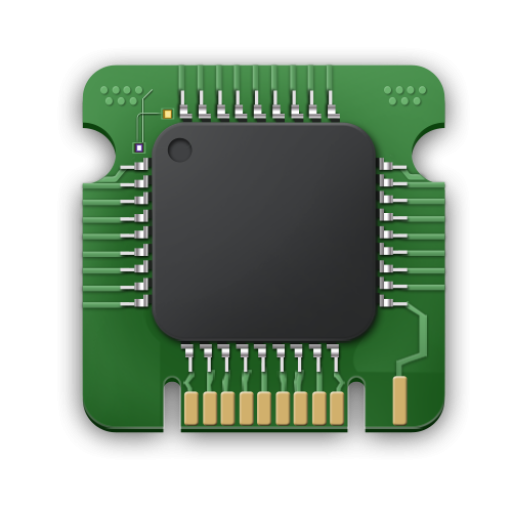Imagine a world without technology. No smartphones, no computers, no cars. It’s hard to picture, right? Technology has become so integral to our lives that it shapes how we work, communicate, and interact with everything around us.
From basic tools to complex systems, technology has driven progress, evolving to meet our changing needs. As we navigate this ever-changing landscape, understanding the impact of technology is crucial for the future.
In this comprehensive guide, we’ll explore the evolution, current applications, and future potential of technologies across various sectors, addressing both the benefits and challenges of technological advancement.
Defining What the Technology Really Means
The word “technology” is frequently used, but its definition is not as straightforward as it seems. Many people confuse technology with science or simply equate it with modern gadgets.
To clarify, let’s examine the core aspects of technology. Technology is often closely linked with scientific knowledge, but it serves a distinct purpose.
The Scientific Application of Knowledge
Technology is essentially the practical application of scientific knowledge to achieve specific goals or solve real-world problems. This involves using our understanding of the world to create new methods, tools, or systems that can improve our lives or transform industries.
Technology as Tools, Techniques, and Systems
Beyond just physical devices, technology encompasses a broad range of tools, techniques, and systems that enable us to accomplish tasks more efficiently or effectively. This includes not only hardware and software but also methodologies and processes that drive innovation and progress.
The Evolution of Technology Through Time
As we look back, it’s clear that technology has come a long way in a relatively short period. The journey from basic tools to sophisticated digital systems has transformed how we live, work, and interact.
From Stone Tools to Digital Revolution
The evolution of technology began with simple innovations like fire and stone tools, which fundamentally changed human capabilities. The Industrial Revolution marked a significant turning point with the introduction of steam and electricity-powered machines, leading to mass production. The 20th century saw breakthroughs in aviation, television, and computing, transforming communication, travel, and healthcare. Today, we live in the digital era, where smartphones and cloud computing connect us in unprecedented ways.

The Accelerating Pace of Technological Change
The time it takes for new technology to become widespread has decreased dramatically over the years. In the past, it took decades for innovations to reach widespread adoption. Now, new technology can become ubiquitous in just a few years. This accelerating pace affects people and societies, challenging our ability to adapt. As technology continues to evolve, understanding its impact is crucial.
| Era | Key Technologies | Impact |
|---|---|---|
| Prehistoric | Fire, Stone Tools | Fundamental changes in human capabilities |
| Industrial Revolution | Steam, Electricity | Mass production, industrial transformation |
| 20th Century | Aviation, Television, Computing | Transformed communication, travel, healthcare |
| Digital Age | Smartphones, Cloud Computing | Global connectivity, information access |
Key Areas of Technology Shaping Our World
As we navigate the complexities of modern life, it’s crucial to understand the pivotal role technology plays in shaping our world. From the devices we use daily to the industries powering our economy, technology touches every aspect of life. Let’s explore the major types of technology that are driving innovation and change today.
Information and Communication Technologies
Information Technology (IT) is the backbone of how we manage and process data today. It’s central to the areas of technology that use systems to store, manage, and manipulate information. This includes both hardware (like computers and servers) and software (like operating systems and apps) that help make our lives and businesses run more smoothly. Effective communication technologies facilitate global information exchange.
Biotechnology and Medical Innovations
Breakthroughs in genetic engineering, pharmaceutical development, and medical devices are revolutionizing healthcare. These advancements are improving treatment options and patient outcomes, showcasing the power of innovation in biotechnology.
Manufacturing and Transportation Technologies
Manufacturing technologies, from automation and robotics to 3D printing and smart factories, are reshaping how products are designed, produced, and distributed. Meanwhile, transportation technologies, including electric vehicles and autonomous systems, are changing how people and goods move around the world.
These key technological areas interact with and influence each other, creating synergistic effects that accelerate innovation. Understanding these technologies is crucial for navigating the modern world.
Artificial Intelligence: The Frontier of What the Technology Can Achieve

The rise of artificial intelligence marks a significant shift in what technology can achieve. AI is now ubiquitous, from virtual assistants like Alexa to recommendation systems on Netflix. Businesses are leveraging AI to make faster decisions, analyze vast amounts of data, and predict trends.
Machine Learning and Natural Language Processing
AI’s capabilities are largely driven by advancements in machine learning and natural language processing. These technologies enable systems to perform tasks that traditionally required human intelligence, such as understanding language and recognizing patterns.
AI’s Growing Economic Impact
AI’s economic impact is substantial and growing. It contributed $500 billion to the global economy in 2023 and is projected to reach $1.6 trillion by 2030. This growth underscores AI’s potential to drive innovation and economic expansion.
As AI continues to evolve, it’s not just about automation; it’s about making smarter, quicker decisions that benefit both everyday life and business. By augmenting human capabilities, AI is creating new types of work and enhancing productivity.
Emerging Technologies Transforming Industries
Emerging technologies are on the cusp of transforming entire sectors, redefining the future of industry and society. As we witness the dawn of a new technological era, several cutting-edge technologies are poised to revolutionize the way we live and work.
5G and Advanced Connectivity
The advent of 5G technology is set to transform the connectivity landscape, enabling faster data transfer rates and lower latency. With 5G, more devices can connect without slowing down, paving the way for applications like smart cities and autonomous vehicles. As 5G networks continue to roll out, we can expect to see new use cases emerge, from enhanced mobile broadband to mission-critical communications.

Blockchain Beyond Cryptocurrency
Blockchain technology is being explored beyond its cryptocurrency roots, with potential applications in secure, transparent record-keeping. Industries like supply chain management and healthcare can benefit from blockchain’s decentralized, immutable ledger. As companies continue to adopt blockchain, we can expect to see increased transparency and security in various sectors.
Quantum Computing and Its Potential
Quantum computing has the potential to solve complex problems that are currently intractable for classical computers. With the ability to process vast amounts of data in parallel, quantum computers can tackle challenges in fields like materials science and cryptography. As researchers continue to advance quantum computing, we can expect to see breakthroughs in areas that were previously unimaginable.
Technology’s Impact on Key Sectors
The impact of technology on key sectors is profound, reshaping traditional industries and creating new possibilities. Various sectors are being transformed by technological innovations, leading to improved efficiency and new opportunities.
FinTech Revolutionizing Financial Services
FinTech innovations are changing financial services, from mobile banking to digital payments and algorithmic trading. These advancements are making financial transactions more accessible and efficient.
Healthcare Technology Advancements
Technologies in healthcare are improving patient care through telemedicine, wearable health monitors, and AI-assisted diagnostics. These advancements are enhancing healthcare delivery and patient outcomes.
Educational Technology and E-Learning
Educational technology is making learning more accessible and personalized. E-learning platforms are reaching wider audiences, providing education across different age groups and geographic locations.
Green Technology and Environmental Solutions
Green technology is addressing environmental challenges through innovations in renewable energy and sustainable materials. These solutions are reducing waste and promoting sustainability.
| Sector | Technological Impact | Examples |
|---|---|---|
| Financial Services | FinTech innovations | Mobile banking, digital payments |
| Healthcare | Telemedicine, AI diagnostics | Wearable health monitors, personalized medicine |
| Education | E-learning platforms | Online courses, virtual classrooms |
| Environment | Green technology | Renewable energy, sustainable materials |

The Human Side of Technology
Human beings have always been defined by their ability to create and utilize technology. This intrinsic trait has enabled us to evolve from using stone tools to landing on the Moon. The profound relationship between humans and technology is evident in how it shapes our daily lives, influences our interactions, and transforms our societies.
Transforming Lives
Technology has fundamentally changed the way people live, work, and communicate. It has brought numerous benefits, including increased convenience, access to vast information, and significant medical advancements. However, it also poses challenges such as digital addiction, privacy concerns, and social isolation. As technology continues to evolve, it’s crucial to address these problems and ensure that it enhances the lives of people across the globe.

Ethical Considerations in Innovation
As we continue to innovate and push the boundaries of technology, it’s essential to balance innovation with ethical considerations. This includes addressing issues like privacy, surveillance, algorithmic bias, and the digital divide. By doing so, we can ensure that technology serves humanity’s best interests and improves the way we live and interact with one another.
Career Opportunities in the Tech Industry

The technology sector is experiencing unprecedented growth, offering a wide range of career opportunities for professionals. The demand for skilled individuals in emerging tech fields is on the rise, driven by innovations in areas like artificial intelligence, cybersecurity, and data science.
Fastest Growing Tech Fields
Some of the fastest-growing areas in tech include AI and machine learning, cybersecurity, and data science. Companies are looking for experts who can develop and implement these technologies. For those interested in blockchain development, there are resources available to learn blockchain technology from scratch.
Skills Needed for the Technology-Driven Future
To succeed in the tech industry, professionals need a mix of technical and soft skills. Key skills include problem-solving, collaboration, and continuous learning. As technology continues to evolve, the ability to adapt and innovate is crucial for career development in this field.
Conclusion: Embracing the Future of Technology
As technology continues to advance, it’s essential to consider both the opportunities and challenges that these developments bring. Emerging technologies like AI and quantum computing will reshape our world. The future of technology holds much promise, with innovations improving people’s lives and creating new tools for various industries. Balancing development with ethical considerations is crucial. By doing so, we can harness technology’s potential to drive positive change globally.
FAQ
How is artificial intelligence transforming various industries?
Artificial intelligence is being used in multiple sectors, including healthcare, finance, and education, to automate tasks, improve decision-making, and enhance customer experiences through machine learning and natural language processing.
What are the benefits of adopting emerging technologies like 5G and blockchain?
Emerging technologies such as 5G offer faster data transfer rates and lower latency, while blockchain provides a secure and transparent way to conduct transactions, both of which are driving innovation and efficiency in various industries.
How is technology impacting the job market and what skills are required for the future?
The job market is being reshaped by technology, with a growing demand for skills in areas like data science, cybersecurity, and software development, as companies seek to leverage digital transformation to stay competitive.
What role does green technology play in addressing environmental challenges?
Green technology is crucial in reducing our environmental footprint by promoting sustainable practices, improving energy efficiency, and developing renewable energy sources, all of which are essential for mitigating climate change.
How is educational technology changing the way we learn?
Educational technology is making learning more accessible and personalized through online courses, adaptive learning platforms, and virtual classrooms, thereby enhancing the overall educational experience.
What are the implications of quantum computing for the future of computing?
Quantum computing has the potential to revolutionize computing by solving complex problems that are currently unsolvable with traditional computers, leading to breakthroughs in fields like medicine, finance, and materials science.







